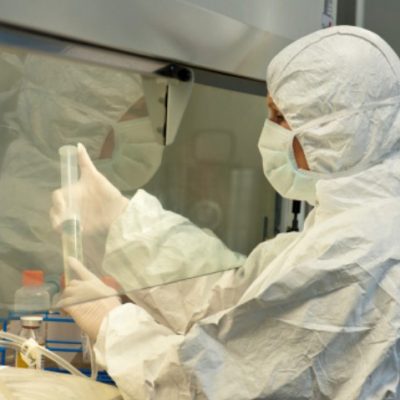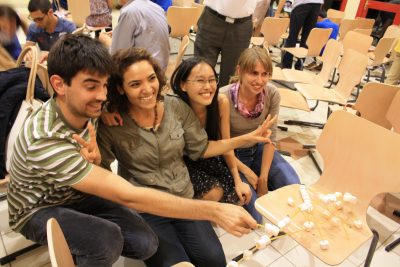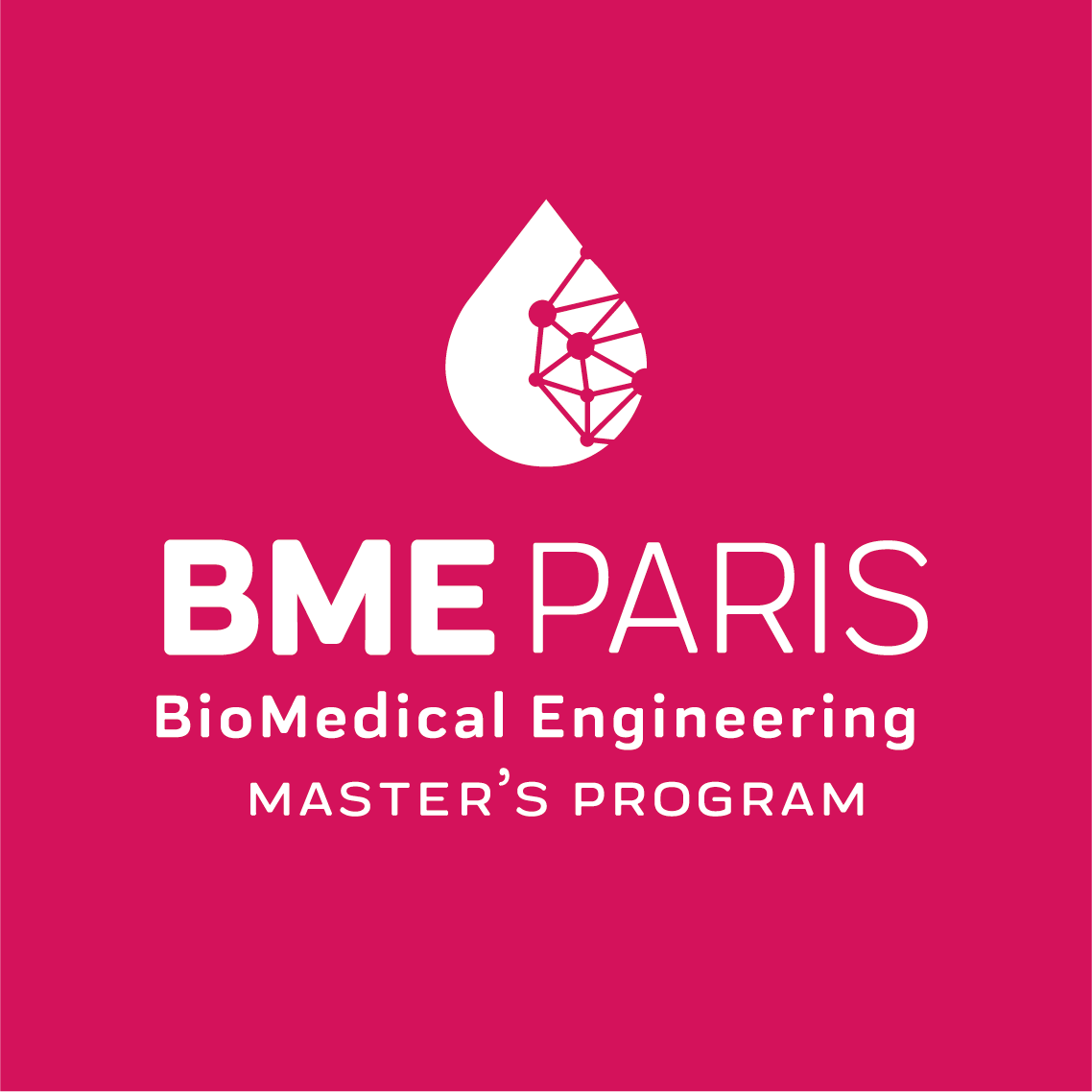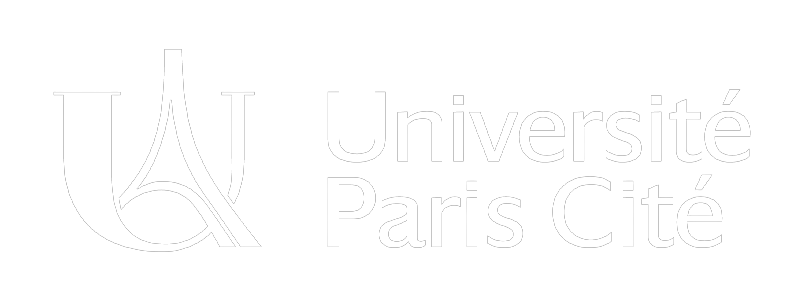Molecular & Cellular Biotherapies
Molecular & Cellular Biotherapies (MCB)

The track on Biotherapies and Advanced Therapy Medicinal Products (ATMPs) offers an exciting opportunity to dive deep into some of the most revolutionary fields in modern medicine. The program is designed to provide students with a comprehensive knowledge of the rapidly evolving areas of cell- and gene-based therapies, tissue engineering and regenerative medicine. Through a blend of lectures, hands-on laboratory work, and case studies, the program is structured to address key aspects of biotherapy development, including molecular and cellular/stem cell biology, immunology, and bioengineering techniques, providing participants with a solid grasp of the science behind advanced therapies.
Additionally, the program explores the regulatory frameworks and the clinical applications essential for the development and safe administration of these innovative therapies, preparing them for research and career opportunities in academia as well as in biopharmaceutical and biotechnology firms, specialized in these fast-growing therapies.
The MCB track thus serves as a comprehensive pathway into the expanding fields of cell and gene therapy, biopharmaceuticals, and regenerative medicine positioning students at the forefront of groundbreaking therapeutic innovations.
Semester 3
Mandatory courses
Course Title: Research methodology
Description: This course aims to equip master’s students in biomedical engineering with essential skills for conducting rigorous scientific research and generating both applied and fundamental knowledge. Research methodology encompasses a broad array of professional practices applicable across settings, from academic institutions to corporate research environments. It involves competencies in planning and executing research, analyzing data, validating hypotheses, and translating findings into publications and presentations for wide dissemination and application. The course is offered at two levels—basic and advanced. The basic level introduces fundamental statistical tools for quantitative research, emphasizing statistical hypothesis testing, with practical sessions. It also covers core principles of scientific writing and the publication process. The advanced level delves into machine learning, Bayesian approaches, advanced scientific writing, and publication strategies. Students will also develop skills in data visualization, data management, coding standards, and science communication, emphasizing open science and responsible research practices.
Key words: Scientific approaches, statistics, article writing, literature review
Total number of hours: 24 Number of ECTS: 3 Semester 3
Mandatory course ☒ Optional course ☐
Prerequisites/skills needed: An innate curiosity and thirst for science. A solid background in statistics and mathematics is required to join the advanced group on machine learning
Teaching methods and activities: ☒ lectures (CM) ☒ practical sessions (TD) ☒
Location: ENSAM
Course supervisor: Claudio VERGARI (Professor), Pierre-Yves ROHAN (Associate Professor), Samuel BOTTANI (Professor)
Course Title: Gene Transfer Strategies
Description: This subtrack aims to provide students with a comprehensive grounding in gene transfer and genome editing strategies, essential for understanding the development of gene therapy medicinal products. The module covers (i) Viral vector-based gene transfer approaches distinguishing between integrative viral vectors like retroviral or lentiviral vectors or those exploiting the benefits of non-integrative virus such as AAV platform; (ii) Non-viral strategies for gene transfer showing in particular the rapidly evolving field of nanocarrier and Lipid Nanoparticle (LNP) technologies; (iii) A comprehensive overview of CRISPR-Cas9, base editing and prime editing technologies, as revolutionary genome-editing technologies. The risks associated with each gene transfer method and genome-editing tool, (including insertional mutagenesis, immune responses, and off-target effects) will be analyzed as part of pedagogical approaches aimed at developing and sustaining students’ critical analysis.
Key words: Gene transfer; Viral vectors; Lipid nanoparticles; Genome editing; CRISPR-Cas9; Base editing; Prime editing; Risk assessment.
Total number of hours: 26 Number of ECTS: 3 Semester 3
Mandatory course ☒ Optional course ☒
Prerequisites/skills needed: This program requires basic knowledge of fundamental cellular and molecular biology
Teaching methods and activities: Lectures (CM)
Location: Université Paris Cité, Faculté de Pharmacie de Paris
Course supervisor: Salima HACEIN-BEY-ABINA (Professor)
Course Title: Basic Immunology in Biotherapies
Description: This module provides an in-depth understanding of immunology’s foundational concepts, enabling students to better understand and engage with immunotherapy and biotherapy innovations. The program covers (i) Essential immunological principles with exploration of the mechanisms behind the immune response, including examination of the cellular and molecular players that mediate the immune response; (ii) The potential of immunocompetent cells as therapeutic agents, detailing T-cell and NK cell therapy applications in cancer and other immune system disorders; (iii) The key immunological considerations in transplantation, including self-tolerance and allograft rejection; (iv) The principles and methods of monoclonal antibody engineering, development and therapeutic applications for treating cancers, autoimmune diseases, and other conditions. Vaccine strategies for infectious diseases and cancer will also be studied with a focus on vaccine development principles, from live-attenuated and inactivated vaccines to mRNA and vector-based platforms.
Key words: Fundamental Immunology; Immunocompetent cells as therapeutic agents; Monoclonal antibody engineering; Vaccine strategies; mRNA-based vaccines
Total number of hours: 32 Number of ECTS: 3 Semester 3
Mandatory course ☒ Optional course ☒
Prerequisites/skills needed: This program requires basic knowledge of fundamental immunology and immunopathology.
Teaching methods and activities: Lectures (CM), practical sessions (TD/Workshops)
Location: Université Paris Cité, Faculté de Pharmacie de Paris
Course supervisor: Guillaume SARRABAYROUSE (Associate Professor)
Course Title: Stem Cells and Regenerative Medicine
Description: This subtrack provides key points to cover the definition and main characteristics of stem cells, in particular their roles in development, tissue maintenance, and regeneration as well as their applications in cell therapy and regenerative medicine. The program covers (i) The different types of stem cells, exploring the unique properties of embryonic stem cells, somatic stem cells and induced pluripotent stem cells (iPSCs); (ii) Exploration of methods for in vitro expansion of stem cells; (iii) Description of adult stem cell niches and their modeling; (iv) Study of therapeutic potential of stem cells in regenerative medicine: understanding of how stem cells are applied in real-world medical situations including tissue engineering. Students will be guided to examine examples of applications through case studies of successful and experimental stem cell treatments.
Learning the concepts covered in this module is consolidated through hands-on workshops supervised by expert teachers in the field.
Key words: Embryonic stem cells; Somatic stem cells; Induced pluripotent stem cells (iPSCs); Cell therapy; Tissue engineering.
Total number of hours: 34 Number of ECTS: 3 Semester 3
Mandatory course ☒ Optional course ☒
Prerequisites/skills needed: This program requires basic knowledge of fundamental cellular biology
Teaching methods and activities: lectures (CM), Hands-on workshops (TP).
Location: Université Paris Cité, Faculté de Pharmacie de Paris and UFR des Saint-Pères
Course supervisor: Romain FONTAINE (Associate Professor)
Course Title: Gene and Cell Therapies: Clinical Applications
Description: This subtrack focuses on the comprehensive development of cell and gene therapy clinical trials and is designed as a two-level progression covering essential aspects from preclinical research to regulatory requirements until clinical applications. Through this program, students will gain the necessary skills for clinical trial design, in the context of advanced therapy medicinal products (ATMPs). The first part of the program covers (i) The preclinical development using animal models; (ii) ATMP-specific regulatory framework and the requirements for clinical trial protocol development; (iii) Considerations for intellectual property (IP) in biotherapeutic development. The second part of this module focuses on applications of gene and cell therapy by disease system, providing students with a foundation in the principles of gene therapy for specific disorders, including the choice of adapted vectors and gene transfer strategies and monitoring therapeutic outcomes. This second-level seminars cover (i) An initial focus on treating monogenic diseases of the lymphohematopoietic system, such as severe combined immunodeficiencies and beta-thalassemia/sickle cell disease; (ii) Exploration of gene therapy for central nervous system and retinal diseases. Students will learn about the challenges and advancements in delivering therapeutic genes across the blood-brain barrier and the role of AAV vectors in CNS targeting; (iii) Gene therapy strategies for myopathies and dermatological diseases, etc…
Emerging and future application of gene therapy including innovative gene therapy prospects with review of cutting-edge gene therapy concepts such as CRISPR-based somatic gene editing and epigenome-modifying therapies, discussing their potential applications across diverse diseases will also be discussed.
Key words: Preclinical development; ATMP regulatory guidelines; Gene and cell therapy clinical applications.
Total number of hours: 74 Number of ECTS: 9 Semester 3
Mandatory course ☒ Optional course ☒
Prerequisites/skills needed: This program requires basic knowledge of fundamental cellular and molecular biology and in fundamental immunology and immunopathology.
Teaching methods and activities: Lectures (CM), practical sessions (TD/Workshops).
Location: Université Paris Cité, Faculté de Pharmacie de Paris
Course supervisor: Salima HACEIN-BEY-ABINA (Professor)
Course Title: Cancer Therapies/Immunotherapies
Description: This subtrack aims to provide a comprehensive overview of the leading immunotherapy strategies currently used in cancer treatment. It covers (i) The tumor microenvironment (TME) complexity and mechanisms of immune escape; (ii) The main categories of adoptive cell therapies which include, Tumor-infiltrating lymphocytes (TILs), Chimeric Antigen Receptor T Cells (CAR-T cells), NK cells/CAR-NK therapies. An in-depth exploration of CAR-T cell design, including target selection, genetic engineering techniques, and applications in both hematological malignancies and solid tumors. Emphasis on the FDA/EMA-approved CAR-T therapies for hematological cancers and ongoing challenges in treating solid tumors; (iii) The Immunomodulatory antibody for cancer therapies with an overview of Checkpoint inhibitors and examination of Bispecific antibodies; (iii) The Oncolytic Virus Therapy with an overview of different viral platforms (herpes simplex virus, adenovirus, vaccinia virus) used in therapy; (iv) The new therapeutic targets in cancer treatment like microbiota.
Examination of current clinical trials using the different cancer immunotherapy strategies across various cancers and discussion of their combination to improve efficacy will be presented.
Key words: Cancer; Immunotherapies; Gene therapy; CAR-T cells; Checkpoint inhibitors; Oncolytic Virus
Total number of hours: 20 Number of ECTS: 3 Semester 3
Mandatory course ☒ Optional course ☒
Prerequisites/skills needed: This program requires basic knowledge of fundamental cellular and molecular biology and in fundamental immunology and immunopathology
Teaching methods and activities: Lectures (CM), practical sessions (TD/Workshops)
Location: Université Paris Cité, Faculté de Pharmacie de Paris
Course supervisor: Stéphanie BESSOLES (Associate Professor)
Semester 4 (30 ECTS)
Mandatory courses





